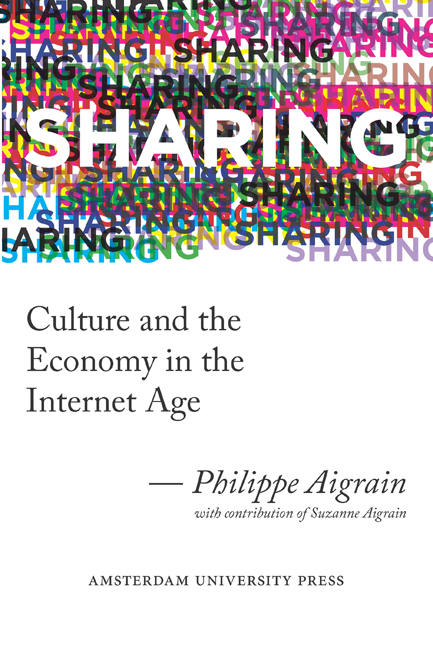3 - The Value of Non-Market Sharing
Published online by Cambridge University Press: 19 January 2021
Summary
Sharing is legitimate
Sharing used to be beyond the copyright arm
We are all accustomed to a dogmatic view of copyright, which is more about forbidding certain things than ensuring certain outcomes. For those who promote this view, the idea of allowing people who are neither the authors nor the copyright holders of a piece of work to share it with other individuals is tantamount to heresy. Article 27.2 of the Universal Declaration of Human Rights (quoted earlier) should serve as a reminder that this has not always been the dominant view. To interpret this article in its fullest sense, we must take into account any means of promoting the material and moral interest of the authors of works, not just the control of copies. With this open approach in mind, is it so obviously wrong to transmit or to make available a cultural product in a non-profit way? Just how could this harm culture itself, or those who contribute to it?
When works could only be distributed on a physical substrate, the first sale doctrine (also known as the exhaustion of rights doctrine) acknowledged that, after the sale of a cultural good, the person or organization acquiring it was free to transmit it to another person. This doctrine was actually just codifying a longstanding principle: copyright (or author rights for that matter) was not concerned with what individuals who have entered into possession of a work such as a book do with it. It was easier to adopt this view in past times because the carrier and the information it carried could not be easily separated. Nonetheless, the usage this enabled was far from insignificant: it led to the development of many useful activities – lending or giving books and records to friends, but also creating loan libraries for books and other media, or videocassette and DVD rental centers. Activities such as reproducing extracts in notebooks, or cutting and pasting them in the physical sense, were widely practiced in the Renaissance and classical periods (Blair 2010). Twenty years ago, when a few lobbies started their great campaign to enforce the scarcity of works in the information domain, they were all too aware of the dangers that these past practices posed to their theories. They thus proceeded to attack them, targeting for example loan libraries in Europe.
- Type
- Chapter
- Information
- SharingCulture and the Economy in the Internet Age, pp. 27 - 48Publisher: Amsterdam University PressPrint publication year: 2012

